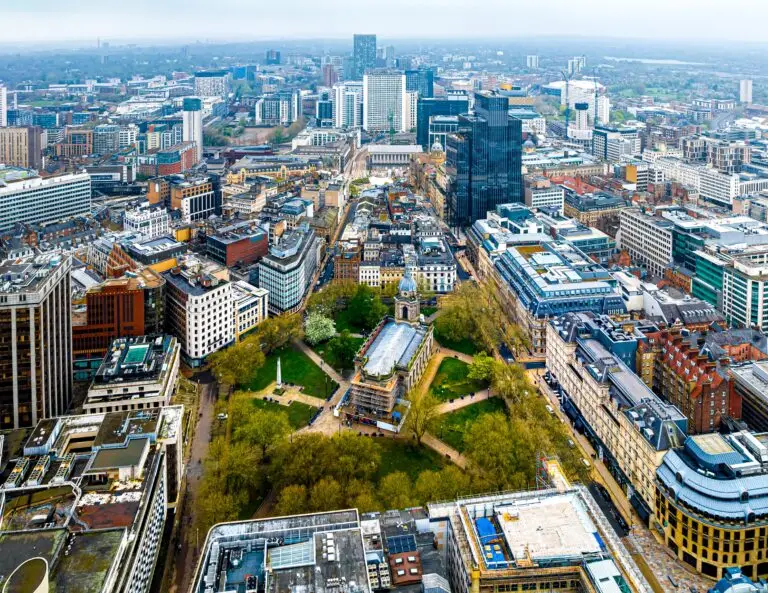Extinction Rebellion knows how to make headlines. From bringing public transport to a standstill, to protestors gluing themselves to the gates of Buckingham Palace, its brand has become synonymous with disruptive tactics which force the public to sit up and take notice, whether they like it or not.
However, on the first day of 2023, the movement made a surprising announcement. Declaring a halt to tactics of “public disruption”, Extinction Rebellion announced it would now be focusing instead on disruption to power, calling on everyone to join them in disrupting “our corrupt government.”
It said it recognises and celebrates “the power of disruption to raise the alarm,” but believes “constantly evolving tactics [are] a necessary approach”. Disrupting the abuse of power and imbalance is “what is needed most” and during a time when “speaking out and taking action are criminalised, building collective power, strengthening in number and thriving through bridge-building is a radical act.” It’s a far cry from the politics of co-founder, Roger Hallam, who once argued “if you’re not in prison, you’re not in resistance.”
The spate of protests over the past few days have been the first time we have seen this more tactical approach implemented. To mark Earth Day, Extinction Rebellion climate activists have filled the streets of London to call for greater government action, but there’s been none of the usual levels of disruption.
In an unusual turn of events, the organisation’s protestors pledged to help guard the London Marathon from other protests, while ensuring they didn’t cause any disruption themselves. A press release issued by Extinction Rebellion stated they were “sharing the streets” with the London Marathon, clearly signifying a wish to be seen as working alongside, rather than opposed to, the general public.
This publicised pivot away from disruptive tactics is no doubt a sign of the times. In the face of an increasingly cash-strapped and disillusioned British public, an approach which piles onto that discontentment isn’t going to curry favour. A decline in government approval ratings has opened up space for the movement to further align itself with the national mood and show that they are working for the people.
As well as being a sign of the times, there is a tinge of desperation to this change of tack too. Extinction Rebellion spokespeople pleaded with the media to reflect this change of heart in their coverage running up to the marathon, in a clear bid to renew their image. There was arguable success in achieving this over the weekend, with widespread coverage of the decision not to disrupt marathon runners. Even the Daily Mail – a traditional opponent – noted the group’s decision “not to be the bad guys – for once.”
Meanwhile, with Just Stop Oil’s explosive arrival onto the protest scene, Extinction Rebellion now has an equivalent, against which it can position itself as more moderate. When Extinction Rebellion announced the halt to public disruption, Just Stop Oil was critical of the decision and doubled down on its commitment to “civil resistance.”
James Ozden, the director of Social Change Lab, has suggested the radical tactics of movements like Just Stop Oil “increase support for more moderate groups, such as Extinction Rebellion,” also mentioning that “this synergistic relationship is likely to benefit the overall climate movement, as people can join groups that appeal most to them.”
But will this be sufficient to change public perception of Extinction Rebellion? By and large the public sees the movement as being entrenched in disruption, a view which will be very difficult to shift. Sustained momentum around its new image and organisational unity when it comes to this approach will be essential, but only time will tell whether it will be enough.
It seems Extinction Rebellion is still testing the waters when it comes to the move away from disruptive tactics too. Spokesperson Rob Callender has emphasised it’s only a pause, contingent on the response of the UK government. If the new approach doesn’t achieve the desired outcomes, “within three months, Extinction Rebellion will have designed a plan for the greatest acts of civil disobedience in this country’s history.”
Successfully ‘raising the alarm’ without alienating the public is a balance the movement has grappled with internally for years. While recent protests may indicate the dawn of a new era, they could just as easily be a brief interlude in a story of news grabbing civil disobedience. This might all hinge on whether the change in tack gains enough public support to make a softer approach worthwhile – for now we’ll have to watch this space.




